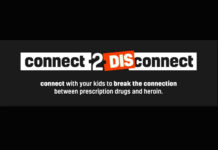A nonprofit addiction treatment provider in the U.S. is currently expanding its treatment base and implementing new programs to assist patients. The Hazelden Betty Ford Foundation, based out of Center City, Minnesota, is collaborating with healthcare providers around the country to develop new approaches to opioid addiction treatment.
Hazelden officials recently announced that Bellevue, Washington will serve as the foundation’s 15th clinical site starting in January.
Hazelden officials stated that the decision to expand to the Seattle area was a result of discussions to provide medication-assisted treatment (MAT) to battle the state’s opioid epidemic, which Gov. Jay Inslee declared a public health crisis in 2016. In addition to MAT, the location will also incorporate the Substance Abuse and Mental Health Services Administration’s screening, intervention and treatment services model to assist teenagers.
In addition, Oklahoma State University (OSU) opened its Addiction Medicine Specialty Clinic in September and became a part of the Hazelden Betty Ford Foundation’s expanding Patient Care Network (PCN).
Patient Care Network
In an effort to increase access to addiction treatment resources, the nonprofit established its own PCN in August, 2017. Unlike other healthcare networks, foundation officials describe the PCN as the first network centered specifically on addiction treatment. Avera Health Services, based in South Dakota, became the first healthcare provider to partner with the foundation’s network.

Bob Poznanovich, vice president of business development for the Hazelden Betty Ford Foundation, stated: “We are beginning to talk with other providers in the Seattle area about becoming involved with our Patient Care Network, which is a collection of like-minded, quality-oriented, ethical providers committed to sharing and collaborating around evidence-based clinical practices, education and research.”
The foundation currently has nearly 20 clinics and is collaborating with a growing number of healthcare providers.
Partnering clinics benefit from the foundation’s array of clinical tools and other resources.
One of the aims of the PCN is to transfer individuals to treatment facilities based on the needs of each patient.
Historical Antecedents
In 1947, a person named Austin Ripley, who was recovering from alcoholism, came up with the idea to open a specialized clinic to treat priests with alcohol use disorders; however, his partners at the time decided that a center that serviced a larger demographic would be more suitable. Although Ripley dropped out, the remaining investors developed the idea further and the Hazelden corporation was founded in 1949.
While the program was originally focused around the abstinence-based, 12-step model of recovery popularized by Alcoholics Anonymous, the treatment focus shifted to one that was more holistic in nature in 1966.
In addition to addiction treatment, the foundation has also launched Hazelden Publishing, which has produced numerous recovery-based books, including New York Times bestsellers.
Following her own recovery from substance abuse, former first lady Betty Ford became an advocate for addiction treatment. In 1982, she established the Betty Ford Center in Rancho Mirage, California.
The center offers inpatient and outpatient treatment for patients with substance use disorders, as well as drug education programs. Different resources such as the Central Nebraska Council on Alcohol and Addictions’ Kids Power Program have adopted educational activities developed Dr. Jerry Moe, who serves as the national director of the children’s programs at the Betty Ford Center, to help adolescents cope with familial drug addiction.
“The essence of [the Kids Power Program] is to come together and realize that everybody in the family can heal,” Moe said.
In 2014, Hazelden and the Betty Ford Center officially merged.
Recent Research and Developments
According to a 2017 report, donor contributions assisted nearly 21,000 people receive treatment from the nonprofit.
One of the foundation’s foremost treatment approaches is the ‘Comprehensive Opioid Response with the Twelve Steps’ (COR-12) model. COR-12 combines MAT, the traditional 12-step program, peer recovery and therapy. The model allows for individualized treatment to address the needs of patients with opioid use disorders (OUD). In addition to optional buprenorphine or naltrexone treatment, specialists provide patients with naloxone.
Poznanovich stated that patients’ co-occurring mental health disorders and other medical conditions must be taken into account in order to determine how they affect their OUDS and extended recovery.
Although addiction treatment is the main focus, the foundation has invested in educating future clinical professionals. In 1999 Hazelden established the Hazelden Graduate School of Addiction, which became accredited in 2007.
The Hazelden Betty Ford Foundation has also collaborated with other organizations to conduct studies on drug addiction. For example, the foundation partnered with the American Bar Association to determine the link between working law professionals and substance abuse.
Another study focused on the efficacy of combining MAT with 12-step programs in residential treatment settings.
Last month, representatives of the foundation showed their support of Congress’ ‘Substance-Use Disorder Prevention that Promotes Opioid Recovery and Treatment for Patients and Communities Act.’ The bill calls for numerous reforms and additional programs to increase addiction treatment resources around the country. Some provisions aim to repeal sections of Medicaid’s ‘institutions of mental disease’ exclusion, assist law enforcement with intercepting fentanyl shipments and forgive student loans for addiction treatment professionals who choose to practice in areas that lack efficient addiction recovery resources.

















